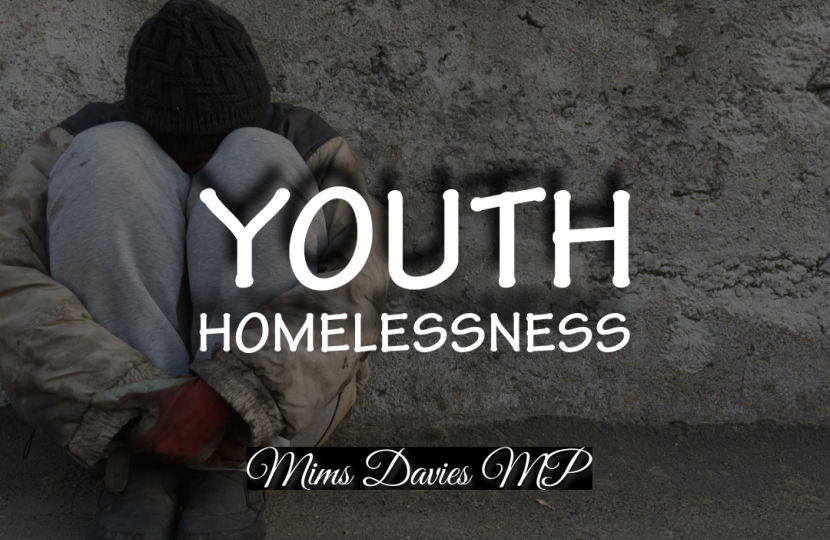
I am absolutely committed to the belief that every child and young person deserves a roof over their head, a safe place to call home and a helping hand to successfully transition to adulthood. I also completely agree with you about the significant cost of youth homelessness, both to individuals and society.
I would like to assure you that I wholeheartedly share the desire of my ministerial colleagues to end rough sleeping once and for all. The Government’s Ending Rough Sleeping for Good strategy, which is backed by £2 billion, recognises the particular challenges facing young people experiencing homelessness. I share your belief about the importance of prevention, which is why I was encouraged to see the strategy put prevention at its heart. The Government has committed over £650 million to councils in England through the Homelessness Prevention Grant to help them prevent homelessness, including youth homelessness.
In addition, at the Autumn Statement the Chancellor announced that the Government is increasing the Local Housing Allowance to the 30th percentile of market rents from April 2024. This will mean that 1.6 million low-income households will be around £800 a year better off on average in 2024-25, and will make it more affordable for young people on benefits to rent properties in the private rented sector.
Government support for housing-led solutions includes the £200 million Single Homelessness Accommodation Programme which aims to increase the supply of good quality specialist supported accommodation and housing-led approaches. I understand that the Government has encouraged local authorities to bid for youth-specific supported accommodation as part of this fund, which will help support young people at risk of homelessness. In addition, £2.4 million of the Rough Sleeping Initiative 2022-25 is dedicated to local youth services.
Since 2018-19, the Department for Education has provided funding to local authorities with the highest number of care leavers at risk of homelessness or rough sleeping. This funding continues to provide targeted support to young people leaving care most at risk of homelessness. I also understand that the Government provides bespoke support for local authorities through the Homelessness Advice and Support Team which helps to promote joint working across housing authorities and children’s services.
Collaboration with the voluntary sector is also vital. For example, the Homelessness Covenant, developed by Crisis and the DWP (Department for Work and Pensions) and DLUHC (Department for Levelling up, Housing and Communities), is a pledge by employers to prevent and end homelessness through inclusive and supportive employment practices. As I say on the Crisis website,
“Employment and progression is key to preventing and ending homelessness and this new and vital Covenant will give employers the knowledge they need to support employees at risk of losing their home or rough sleeping.
We need businesses large and small to lean in to help end homelessness, and I urge them to sign up to being part of the Covenant and help us by playing their part in opening up opportunities for all, and further supporting employees in difficult times and those keen to get into the labour market.”
I hope this provides you with some assurance about the investment being made in prevention and support for young people facing homelessness. This is certainly something I will continue to champion in Parliament.




